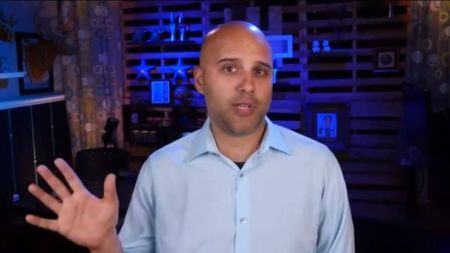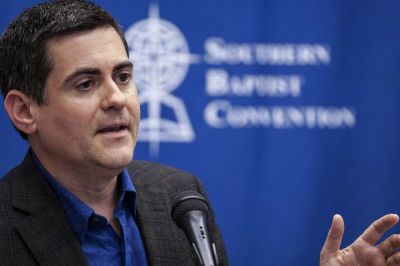Online Sermons Causing Low Church Attendance?

Declining church attendance is partly because of basic economics and a Christian media-saturated world, which has unfortunately communicated that the time and place for worship does not really matter, according to author Skye Jethani.
In a Friday Signposts podcast interview with Russell Moore, president of the Ethics & Religious Liberty Commission of the Southern Baptist Convention, Skye Jethani, author of What's Wrong With Religion: 9 Things No One Taught You About Faith, explained why he believes that amid the many conversations among Christian leaders about declining church attendance, the economic factors are being ignored. Moore engaged the author having seen a string of tweets Jethani has posted outlining some of his thinking on the subject.
"Every time there has been an adjustment in communication technologies it has deeply affected the church," Jethani said, adding that another major adjustment is currently underway with digital communications and the plethora of podcasts and Internet resources tailored for Christians.
"In the past there was a high demand for the teaching of Scripture and having it taught to us and there was a limited supply," he noted.
The most intelligent person in town would have the job of equipping people with a biblical education and people would show up to one place on a specific day and time to receive it since there were such limited options.
"Today, I think the economics are reversing," Jethani continued, "where at any moment I can get access to phenomenal Bible teaching from a hundred different sources through my smartphone, through YouTube, through podcasts."

The older model that has been in place for 500 years since the beginning of the Reformation made sense at the time, but in light of such a massive supply, "showing up on Sunday for sermon does not have the attractional pull that it once did," the author said.
This is especially an issue for denominations and churches that tend to focus on preaching as the centerpiece of Sunday morning, and less so for sacramental traditions where the celebration of communion is the pinnacle of the service.
He went on to say that he does not intend to undermine the importance of sound teaching but urged the church to consider these factors.
Moore pressed Jethani further, disagreeing slightly, observing that church people today do not seem overly saturated with substantive Bible knowledge.
Moore elaborated that today not only do many people forego church completely but many Christians attend sporadically, perhaps once a month or once every two weeks and have no qualms about it. And he posited that if one were to visit a typical evangelical church today one would not find so much solid exposition of Scripture, but talks full of practical tips about how to live a better life mixed with moralism and psychotherapy.
Jethani agreed that plenty of "fast-food Bible teaching" exists, but maintained that the technology has nevertheless shifted the mindset of many. The thinking now is that if one wants to access anything close to good biblical teaching, church is not necessarily the place to get it, he explained.
"But we need to factor in the availability and the saturation of that content [online] when we think about why people aren't showing up," he said, drawing an analogy between shoppers who visit bookstores and how Amazon has changed the marketplace.
Moore noted another mindset among many Christians have about going to church: that it is primarily about the downloading of information rather than a spiritual experience. Listening to worship songs in the car is fundamentally different from congregational singing, he argued.
"I think we've lost that sense of what makes the gathering itself different from simply equipping me for the rest of the week," Moore said.
Jethani concurred, noting that this mentality is an "unintended consequence" of an otherwise noble evangelical commitment to utilizing whatever media is available for the furtherance of the Gospel.
"Over the last 100 years as we've used radio and television and the Internet, and what we have inadvertently communicated to people is that the medium does not matter, and all that matters is message."
This also happens even in some church gatherings where parishioners show up to a specific place to watch someone preaching on a large screen that may have been recorded at another location, and have little communion with those around them.
"We've dis-incarnated." Jethani lamented. "We should be people of incarnation."
How, when, and where one accesses the message of the Gospel does matter, he reiterated.
While preaching on broad themes has its place, Jethani continued, "there is something really beautiful and prophetic, even Christ-like when a pastor steps out from within a community that he belongs to and brings God's Word to bear on the immediate realities of that community. That's what a shepherd does."
Such a thing connot be acheived online.
"That takes relationship, that takes incarnation, that takes presence, it takes an awareness of what these sheep are facing in their lives."
He also advised that churches take an active role in recommending what media resources and podcasts are theologically sound.
Jethani is also the author of The Divine Commodity: Discovering a Faith Beyond Consumer Christianity, a book which articulates how consumerism has distorted the Christian faith.






















